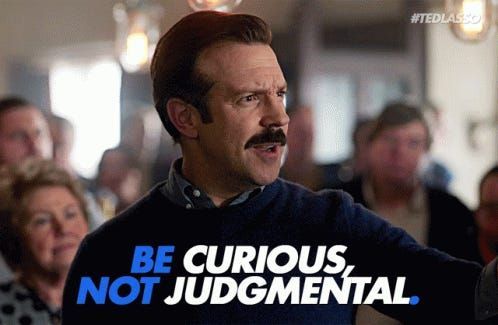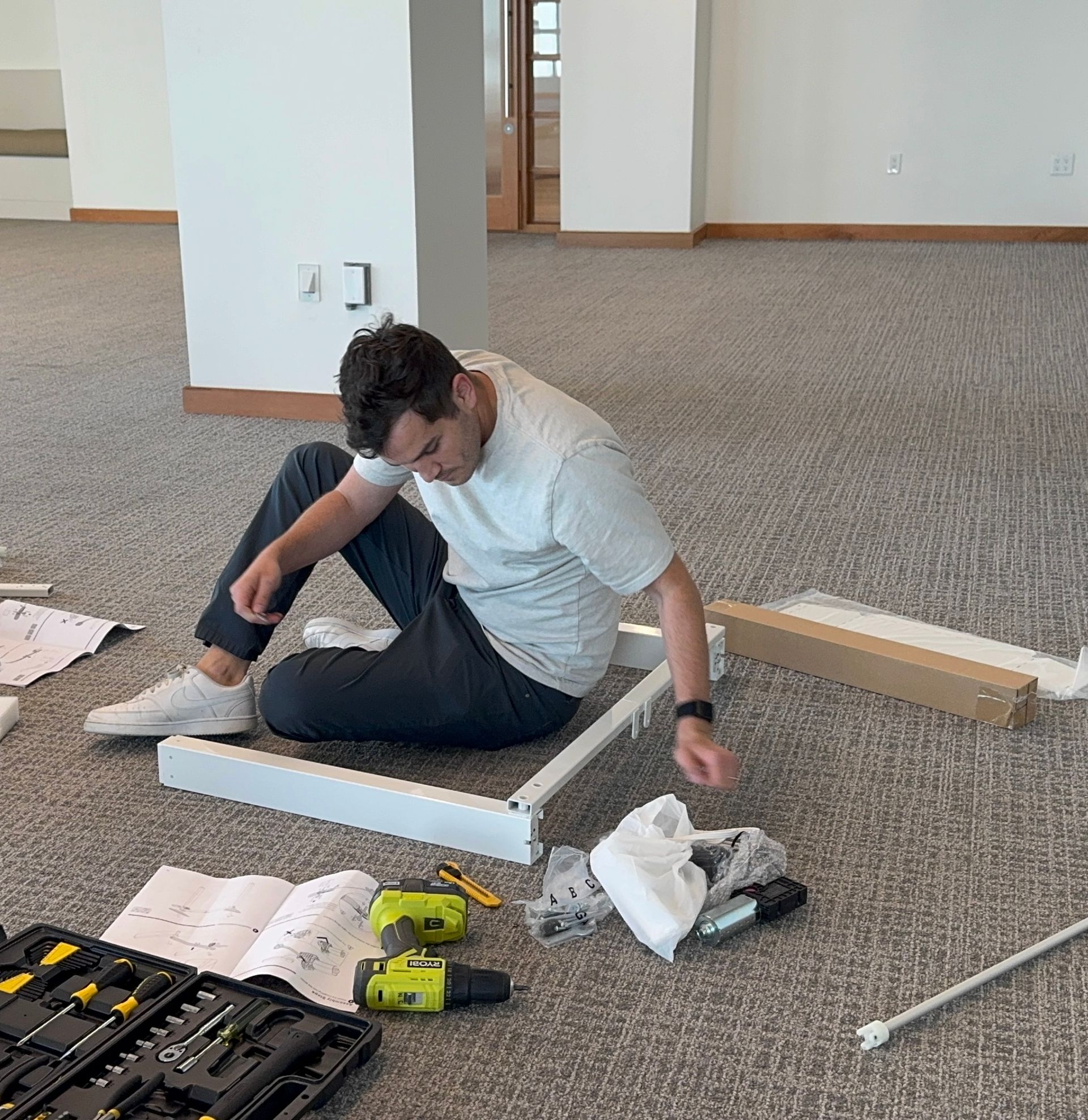
Leadership Lessons from Passover: What Moses, Miriam, Aaron and Pharaoh Can Teach Us (No Burning Bush Required)
Ancient Leadership, Modern Application: Humility, Delegation, Celebration, and (Please) No Plagues

Ever notice how the best leadership insights come from the most unexpected places? The other day, while scrolling through LinkedIn's endless parade of "I'm humbled to announce" posts and corporate buzzword bingo, I found myself thinking about Passover's approach. Not just because I've been practicing the Four Questions with Yael (who, at 4, has mastered the art of asking "why" about EVERYTHING... seriously, try explaining why the sky is blue to a preschooler at 7am), but because these ancient characters offer better leadership lessons than most $4,000 executive seminars I've sat through.
Let's be real, between juggling toddler negotiations at home ("No, Diana, we don't eat crayons even if they're the same color as blueberries") and website strategy meetings at DoorLoop, I've become something of an amateur leadership anthropologist. And what I've discovered is that the Passover story isn't just a religious narrative; it's basically the original leadership case study that Harvard Business School wishes they'd published first.
Moses: The Reluctant CEO Who Couldn't Stop Saying "I'm Not Qualified"
Moses is the original impostor syndrome poster child. When God offers him the biggest promotion in history at the burning bush, his response is essentially, "Have you checked my LinkedIn? I think you've got the wrong guy. Maybe try my brother?"
This is what makes Moses so fascinating as a leader. He doesn't march into Pharaoh's palace with the swagger of a tech founder who just secured Series A funding and bought matching Allbirds for the entire executive team. He's terrified. He stutters. He begs God to send someone else. Yet his reluctance becomes his superpower.
The most effective leaders often don't want the job in the first place. They lead from a place of service rather than ego. I've seen this repeatedly in my consulting work, the best leaders aren't the ones who bulldoze their way into the C-suite; they're the ones who recognize the weight of responsibility and approach it with appropriate humility. (And usually without the 27-slide deck explaining why they're perfect for the role.)
Moses also mastered the art of delegation (after some serious burnout and a reality check from his father-in-law Yitro, who was basically the world's first executive coach). If the guy who literally spoke to God needed help, maybe we should all embrace the "I can't do everything" mindset a bit more readily. I'm still working on this one myself, just ask my wife about the time I tried to redesign our website, cook Shabbat dinner, and assemble a toddler bed simultaneously.
Aaron: The Ultimate Wingman (With Mixed Results)
If Moses is the reluctant CEO, Aaron is the COO who actually makes things happen. He's the communicator, the implementer, the guy who translates vision into reality while his brother is up on the mountain getting the big-picture strategy download.
But Aaron's story also shows us the danger of prioritizing harmony over hard conversations. When the Israelites demand a golden calf, Aaron doesn't push back, he gives them exactly what they want. It's like the product manager who knows the feature is a terrible idea but builds it anyway because the client is screaming for it. We've all been there, right?
Great leadership partnerships require both support and accountability. In my years at DoorLoop, I've learned that the best collaborators aren't yes-men; they're the colleagues who'll privately tell me when my brilliant idea actually isn't so brilliant. The ones who say, "AJ, I get where you're going with this, but have you considered this?"
Aaron reminds us that even in supportive roles, we need the courage to speak truth to power, especially when that "power" is the mob mentality of an anxious organization. Or a team that's convinced that adding just one more feature will solve everything.
Miriam: The Community Builder Who Knew Celebration Matters
While the guys were busy with logistics and laws, Miriam understood something fundamental about leadership: people need moments of joy and connection.
After crossing the Red Sea, it's Miriam who leads the women in song and dance. In the midst of a high-stress situation (fleeing slavery, minor detail), she creates space for collective celebration. This wasn't just a nice-to-have; it was essential for community resilience.
Great leaders don't just solve problems, they cultivate moments of shared meaning. This is something I try to remember both at work and with my daughters. When Diana takes her first steps or when a team launches a new website after weeks of debugging, taking time to celebrate isn't frivolous, it's what gives meaning to the journey. Though I'll admit my celebration dance moves aren't quite as inspiring as Miriam's probably were.
Miriam's leadership style was proactive rather than reactive. From watching over baby Moses in the bulrushes to leading celebrations, she didn't wait for permission to lead. She saw what needed to be done and did it, regardless of formal authority. No "waiting for alignment" or "circling back after the next sync" for her.
Pharaoh: The Toxic Boss We've All Had
Then there's Pharaoh, the ultimate cautionary tale. Despite facing increasing evidence that his leadership approach wasn't working (frogs, locusts, darkness... subtle hints), he doubles down on control and rigidity.
We've all worked for a Pharaoh at some point, haven't we? The kind of boss who responds to every crisis by demanding more bricks with less straw. The one who sees ten plagues as a personal challenge rather than feedback.
Pharaoh's leadership failure wasn't just moral; it was practical. His stubbornness cost him his workforce, his firstborn son, and eventually his army. Talk about a catastrophic ROI. I've seen startups crash with better metrics than that.
Leadership inflexibility isn't just unpleasant, it's unsustainable. I've watched brands and businesses implode because leaders couldn't adapt their mental models when reality changed. The market, like the plagues, has a way of humbling those who refuse to listen. And unlike Pharaoh, most of us don't get dramatic background music when our strategies fail.
The Passover Leadership Framework
What emerges from these four characters is a leadership spectrum that's remarkably applicable today:
- Lead with humility (Moses): Recognize your limitations and build teams that complement your weaknesses. Nobody expects you to part seas on your own.
- Balance collaboration with conviction (Aaron): Support others while maintaining ethical boundaries. Sometimes the team needs to hear "no," even when "yes" would be easier.
- Foster community resilience (Miriam): Create spaces for celebration and collective meaning. The spreadsheets can wait; the human connections can't.
- Embrace adaptability (anti-Pharaoh): When evidence suggests your approach isn't working, have the courage to change. Before, you know, the locusts arrive.
I've found myself returning to these principles repeatedly over the years. The best brands, like the best leaders, balance vision with humility, conviction with collaboration, and strategy with humanity. And they don't need ten plagues to change direction when something isn't working.
From Matzah to Modern Leadership
As I prepare for another Passover with my in-laws (now with two daughters to chase around the table—pray for me and my wine glass), I'm reminded that leadership lessons don't always come from the expected sources. Sometimes they're hiding in ancient stories we've heard since childhood, sandwiched between the horseradish and charoset.
The Passover narrative reminds us that leadership isn't about having all the answers, it's about asking the right questions. It's not about perfect execution but about purpose-driven persistence. And most importantly, it's not about the leader as hero, but the leader as servant to something greater than quarterly targets.
So the next time you're facing a leadership challenge, whether it's a website redesign, a brand pivot, or just getting a toddler to put on shoes (a negotiation that would make Moses himself sweat), channel a bit of Moses' humility, Aaron's implementation skills, Miriam's community-building, and absolutely none of Pharaoh's stubbornness.
The sea may not part for you, but I promise the results will be worth celebrating. Preferably with better wine than the stuff we drink at the Seder.
What leadership lessons have you found in unexpected places? Drop a comment below or hit me up on LinkedIn. And if your brand needs a little exodus from mediocrity, that's exactly what we do at Zossoz. No plagues required.









